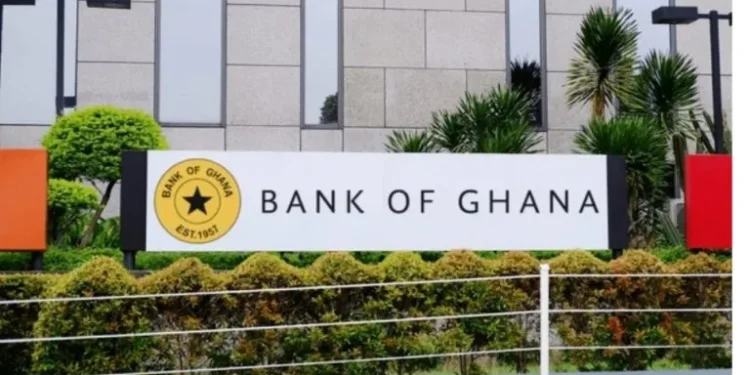BoG Reduces Negative Equity Position by GHS 4.02bn to GHS 61.32bn; Posts GHS 9.49bn Operating Loss in 2024
The Bank of Ghana (BoG) has posted a GHS 4.02 billion improvement in its negative equity position, reducing it from GHS 65.34 billion in 2023 to GHS 61.32 billion at the close of the 2024 financial year.
This is according to the central bank’s audited financial statements for 2024, released in line with its statutory obligations and commitment to transparency and sound financial governance.
Despite the improvement in its equity position, the Bank recorded an operating loss of GHS 9.49 billion for the year under review, lower than the GHS 13.23 billion loss reported in 2023.
According to the BoG, the GHS 9.49 billion operating loss stemmed from total operating income of GHS 9.40 billion falling short of total operating expenses, which amounted to GHS 18.89 billion.
Key Cost Drivers
The central bank cited several key cost drivers for the losses recorded in 2024. These include:
Open Market Operations: GHS 8.60 billion
Revaluation and Exchange Losses: GHS 3.49 billion
Gold-for-Oil Exchange Losses: GHS 1.82 billion
Currency Issuance Expenses: GHS 1.01 billion, up from GHS 0.69 billion in 2023
In addition, the Bank noted that a modification to its accounting treatment of foreign exchange gains and losses—arising from the revaluation of assets and liabilities in gold, Special Drawing Rights (SDRs), and foreign securities—also influenced the reported losses.
Fiscal Accountability and Reform
While the BoG’s continued losses remain a source of concern, the narrowing of its negative equity position signals modest progress in efforts to strengthen its financial position amid macroeconomic recovery.
The publication of the 2024 financial statement underscores the central bank’s commitment to transparency and fiscal accountability, following intense public scrutiny in previous years over its balance sheet deterioration.
The Bank’s loss position remains a critical area of focus for analysts and stakeholders as Ghana continues to navigate a path of fiscal consolidation under the ongoing IMF-supported programme.








